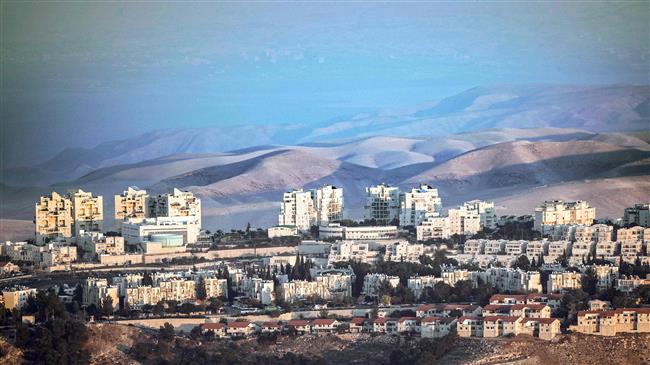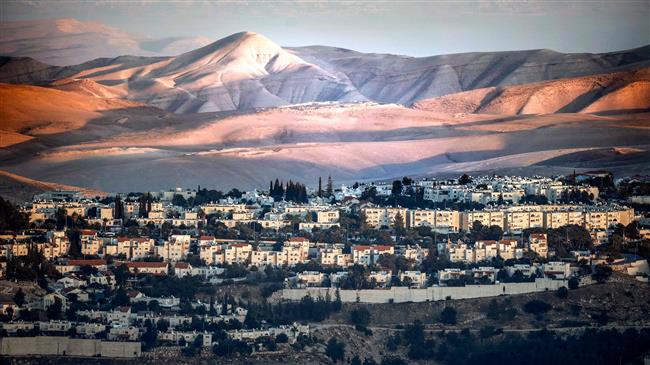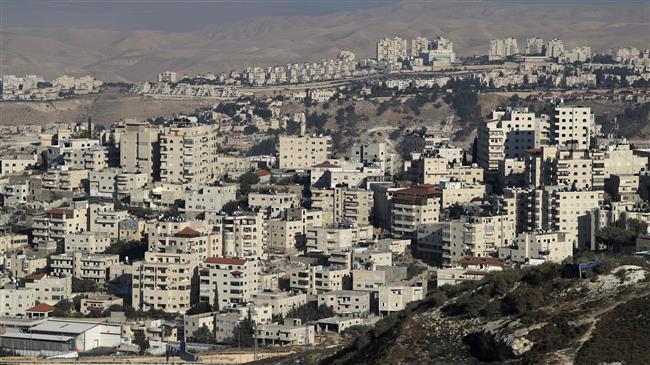UN postpones reports on companies with business ties to Israeli settlements
The United Nations has one again delayed the publication of a database of companies with business ties to Israeli settlements in the occupied West Bank, angering activists who had campaigned for the move over the past three years.
United Nations High Commissioner for Human Rights, Michelle Bachelet, said in a letter to the Human Rights Council on Tuesday that despite progress made since launching the study, further work was needed due to the “novelty of the mandate and its legal, methodological and factual complexity.”
She added that her office aimed to finalize and issue the study “in coming months.”
Meanwhile, activists have expressed outrage over Bachelet's decision, stating that her predecessor, Zeid Ra'ad al-Hussein, had already postponed the publication of the database of firms with ties to Israeli settlements in 2017 before stepping down last August.
“Israeli authorities’ brazen expansion of illegal settlements underscores why the UN database of businesses facilitating these settlements needs to be published,” Bruno Stagno Ugarte of Human Rights Watch said in a statement.
“Each delay further entrenches corporate involvement in the systematic rights abuses stemming from illegal settlements,” he added, calling on Bachelet to commit to a clear publication date.
Palestinian rights groups and trade unions, in a letter dated February 28, had urged Bachelet to publish the database.
They said further delays would undermine her office and foster an “existing culture of impunity for human rights abuses and internationally recognized crimes in the occupied Palestinian territories.”
The World Jewish Congress said its CEO, Robert Singer, had met Bachelet last month and urged the cancellation of the database.
Israeli officials and pro-Israel lobbyists say companies appearing in such a database could be targeted for boycotts or divestment, and this will stepping up pressure on the Tel Aviv regime over its land expropriation and settlement expansion policies in the West Bank.
Good produced in settlements, which most world countries and the United Nations view as illegal, include fruit, vegetables and alcoholic beverages.
Last month, Ir Amim, an Israeli NGO opposing Tel Aviv’s settlement expansion activities, published a new map that illustrated an “accelerated, intensifying chain of new facts on the ground in the most historically contested and politically sensitive part of Jerusalem [al-Quds]: the Old City and adjacent ring of Palestinian neighborhoods,” which help reinforcement of settlement plans.
The NGO pointed to a number of Israeli-sponsored settlement campaigns inside Palestinian neighborhoods, including “settler initiated evictions of Palestinians, takeovers of their homes, and the expansion of settler compounds,” in addition to the use of the so-called “touristic settlement sites” as “key points” contributing to the campaigns.
Ir Amim said the supposed tourism and archaeology projects “assume a central role in Israeli settlement policy.”
About 600,000 Israelis live in over 230 illegal settlements built since the 1967 Israeli occupation of the Palestinian territories of the West Bank and East Jerusalem al-Quds.
The UN Security Council has condemned Israel’s settlement activities in the occupied territories in several resolutions.
Less than a month before US President Donald Trump took office, the United Nations Security Council in December 2016 adopted Resolution 2334, calling on Israel to “immediately and completely cease all settlement activities in the occupied Palestinian territories, including East Jerusalem” al-Quds.
Palestinians want the West Bank as part of a future independent Palestinian state with East Jerusalem al-Quds as its capital.
The last round of Israeli-Palestinian talks collapsed in 2014. Among the major sticking points in those negotiations was Israel’s continued settlement expansion on Palestinian territories.
‘Ethnic cleansing’: Hamas blasts Israeli attacks on Gaza hospital amid intl. silence
Saudi delegation meets HTS leader at presidential palace in Damascus
Relentless Israeli ceasefire violations justify need for self-defense: Lebanese MP
Tel Aviv tells Damascus Israeli forces will remain in occupied territory: Report
Dec. 22: ‘Axis of Resistance’ operations against Israeli occupation
‘Abhorrent’: Oxfam says only 12 trucks delivered aid in North Gaza since Oct.
VIDEO | Leader receives religious eulogists on Hazrat Fatima birth anniv.
Pope Francis slams Israel’s ‘machine-gunning’ of Gaza children





















 This makes it easy to access the Press TV website
This makes it easy to access the Press TV website